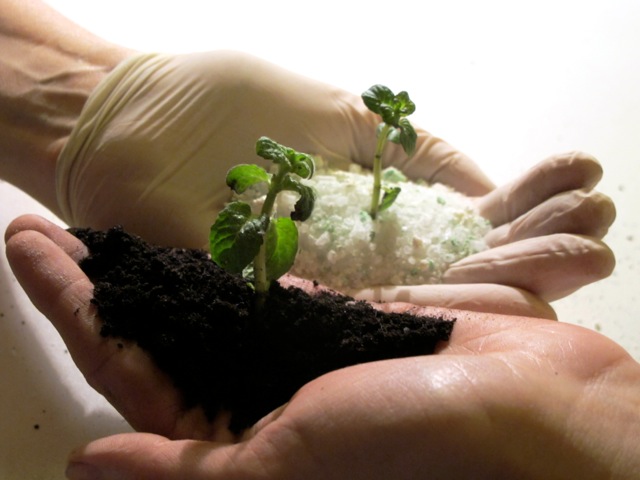Originally published in the Great Falls Tribune – March 26, 2015
The topic today is soil. Not only in this column but also around the world. The United Nations has declared 2015 as the International Year of the Soil and the National Institute of Health is engrossed in examining the genetics of bugs that live in and on our body. This ongoing project is called the Common Fund’s Human Microbiome Project. What, you may ask, do these two things have in common?
The definition of ‘soil’ for the purpose of this article, as quoted from the Merriam Webster Dictionary, is “a medium in which something takes hold and develops.” With this definition we can consider the soil of our intestinal tract and the soil that makes up our agricultural land in the same context. The composition of the soil determines how well the system functions and is key to superb health for each ecosystem.
The human ecosystem, or soil, is comprised of trillions of microbes including bacteria, viruses, fungi and parasites. To give some perspective about how many bugs are in and on us, it has been estimated that we are 10-parts microbial cells and 1-part human cells.
We start our journey in this world with the microbes we get from our moms during birth. Lifestyle factors and our food choices determine which microbes dominate. During the first year of life microbes start staking claim to the space available. By age two and a half the furthest end of our intestines are colonized with the microbes that will stay with us for life. We each develop a blueprint of microbes that is unique – like our fingerprints.
Contributors to human ‘soil’ include a varied, whole foods diet and low stress. Exposure to microbes is essential. We pick them up from many sources including the fresh food we eat. We need these exposures to maintain a rich biodiversity of microbes in our guts. A diet of mainly processed foods does little to ensure this biodiversity.
Depletors of human soil include high stress and antimicrobials that are found in soaps and cleaning products. Antibiotics cause direct depletion of microbes, good ones and bad ones.
In agricultural lands healthy plant soil is composed of bacteria, fungi, earthworms and other organic matter. This soil must be nurtured. Nutrients and biomass must be replaced after they are removed with the harvest.
Contributors to this soil come from development of humus – the organic decaying component of soil. Methods to do this are used in organic agriculture and Permaculture. Microbes thrive on good humus and enrich the soil with nutrients that the plant needs to survive. In turn we consume these plants and incorporate these elements necessary for optimal health.
Depletors include industrial agriculture that takes nutrients and biomass from the soil and gives back only chemical inputs, insecticides and herbicides. Antibiotics get into the soil from animals raised in Concentrated Animal Feeding Operations (CAFOs). These animals are given antibiotics to prevent the diseases that occur in these overcrowded settings. Urban sprawl contributes to a runoff of chemicals that are detrimental to the health of the land.
An abundant variety of microbes in human soil are crucial to health since they aid in digestion; educate and activate of the immune system; and detoxify up to 50% of food and chemicals. They are essential for growth and repair of intestinal cells and protect us from pathogens. Microbes re-circulate important nutrients that come from food, including energy, and assist to decrease cholesterol. They make vitamins K and B12 and the neurotransmitters needed to help keep mood stable. Loss of biodiversity in human microbiome is linked to many diseases.
The composition of the earth’s soil is crucial to the health of the planet since it can sequester carbon. Dr. Rattan Lal, an Ohio State Soil Scientist, reports that it would only take a 2% increase in soil carbon content to offset greenhouse gas emissions by 100%. Regenerative organic agriculture aims at this mission. Rodale Institute also advocates for this in their paper Regenerative Organic Agriculture and Climate Change.
Humans and agricultural land are interdependent and need each other to stay healthy. Humus-rich soil allows for abundant nutrients and amazing flavor in healthy crops. In turn abundant nutrients in these crops keep us healthy and enjoying tasty food. Take responsibility and choose food that has been grown responsibly by farmers who are acting as the stewards of the planet and nurturing rich, humus-dense soil.

